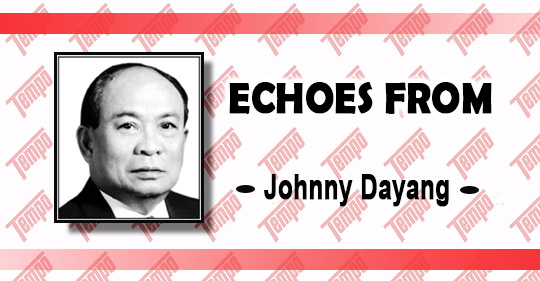BY JOHNNY DAYANG
President Duterte’s campaign mantra in 2016 was the vow to embrace transparency as a way of fighting and corruption in government. It was a pledge that resonated in the minds of voters who, believing in his promise, trooped to the polls to back his agenda of change.
True enough, on July 23, 2016, less than two months in his presidency, Duterte signed Executive Order No. 2, the Freedom of Information (FOI) Program, a first in the country.
But this pledge has since been defied with impunity, especially in the way agencies block requests for issuance of reproduced Statement of Assets, Liabilities, and Net Worth (SALN). This reluctance became obvious to the investigative press right when doing scrutiny of the President’s wealth and that of his closest allies.
But the worse rebuff took place a month ago. In September 2020, the Supreme Court, still licking the wounds endured following the removal of former Chief Justice Maria Lourdes Sereno, turned down the requests of the Office of the Solicitor General and a suspended lawyer for the release of Justice Marvic Leonen’s SALN.
In the same vein, the Office of the Ombudsman issued Memorandum Circular No. 1, Series of 2020, effectively making SALN release as a tool for lifestyle check nearly impossible.
Ombudsman Samuel Martires pointed out that SALNs have become a source of extortion for some media practitioners, saying there is no law that institutionalizes lifestyle check. He explained that the anti-graft body is not the only source of SALNs but offices like the Civil Service Commission and the mother agencies can also be sources of the same coveted documents.
And if in a sounding board, the Palace, through its dithering mouthpiece, hastily came out with a statement backing the Ombudsman in its effort to stop the lifestyle checks of public servants suspected of stealing taxpayers’ money.
These developments, if pieced together, provide the public an inconvenient truth that transparency, for all it is worth in bringing down red tape in government, is a farce and not the Duterte administration’s cup of tea.
For if indeed the State has the common sense to bring down people engaged in shady deals, releasing SALNs, even if it causes injury to some public servants, should be viewed broadly as a tool to deter corruption against all form of malpractices in government.
The Ombudsman may be right in arguing corruption in bureaucracy is caused by the collapse in personal values but shielding shady deals from being exposed by refusing to issue SALNs is a misplaced argument.


